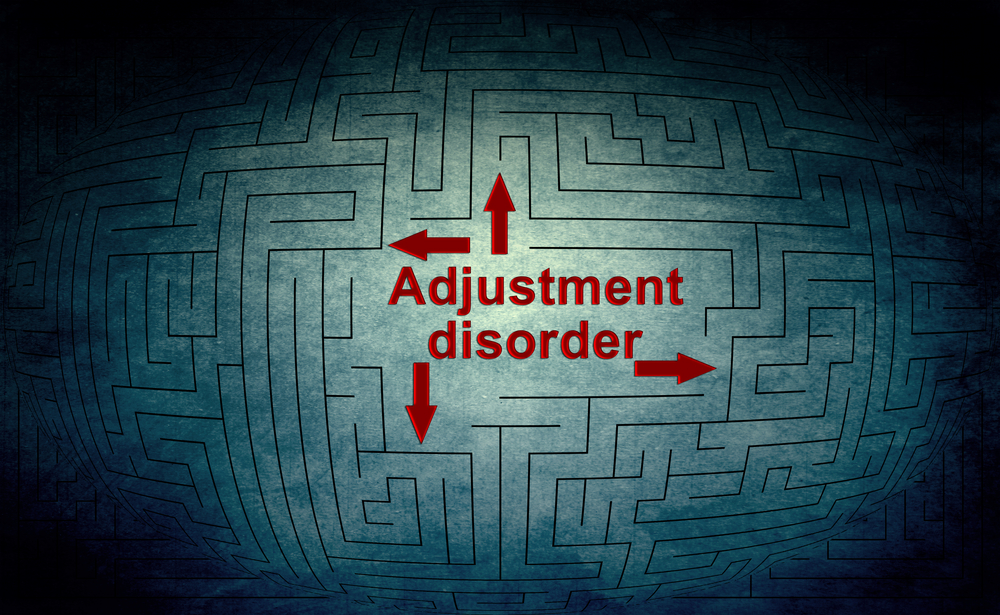Knowledge of Adjustment Disorder

Adjustment disorder might develop when you struggle to handle a stressful life event. These may include losing a loved one, having a bad relationship, or getting fired from your job. Even while everyone experiences stress, some people find it difficult to cope with particular pressures.
One or more severe psychological symptoms, and occasionally even bodily symptoms, can result from the failure to cope with the traumatic incident. The six different types of adjustment disorders each have their own symptoms and warning indications. Both adults and children are susceptible to adjustment issues.
Therapy, medicine, or a mix of the two may be used to treat these conditions. A speedy recovery from an adjustment problem is typically possible with assistance. Unless the stressor continues, the disorder normally doesn’t last longer than six months.
Identifying Adjustment Disorder Symptoms
The psychological and physical signs of adjustment disorder typically appear during or right after a stressful incident. If the stressor isn’t eliminated, your symptoms can persist even though the disorder only lasts for six months at most. Only one symptom exists in some persons. Numerous symptoms may be felt by others.
The following are examples of adjustment disorder mental symptoms:
- Impetuous or rebellious behavior
- Anxiousness
- Sadness, hopelessness, or a sense of being trapped
- Sobbing, having a withdrawn demeanor, and being distracted
- Self-confidence issues suicidal thoughts
- One type is accompanied by both physical and psychological symptoms. These bodily signs may include:
- Insomnia trembling or twitching in the muscles weariness stiffness or pain in the body indigestion
Adjustment Disorder Types
The six forms of adjustment disorders and their associated symptoms are as follows:
adjustment dysfunction and depression
People who have been diagnosed with this kind of adjustment illness frequently feel depressed and hopeless. It is also connected to sobbing. Additionally, you can discover that you no longer enjoy past interests.
Anxiety and a deficit of adjustment – Having an adjustment disorder with anxiety is characterized by feelings of worry, anxiety, and overwhelm. Concentration and memory issues may also be present in those who have this illness. Children with this illness frequently experience separation anxiety from their parents and other loved ones.
Anxiety and depression mixed with adjustment problems – These adjustment disorders cause both despair and anxiety in their sufferers.
Adjustment disorder and conduct disturbance – The main behavioral problems associated with this type include reckless driving and picking fights. Teens that suffer from this illness could steal or damage property. Additionally, they might begin skipping class.
adjustment disorder with mixed emotional and behavioral disturbances
Depression, anxiety, and behavioral issues are signs of this form of adjustment disorder.
Unknown adjustment disorder – People who have an adjustment disorder undefined diagnosis experience symptoms that aren’t common to the other categories of adjustment disorders. Physical symptoms or issues with friends, family, coworkers, or academics are frequent examples of these.
What triggers disorders of adjustment?
An adjustment problem might result from many different stressful situations. among the frequent causes in grownups are:
- loss of a loved one or friend
- difficulties in relationships or a divorce
- significant life changes
- disease or health concern (in you or a close friend)
- moving to a new home or location Unexpected catastrophes
- issues with money or worries
The following are typical reasons in kids and teenagers:
- family disputes or issues
- difficulties at school
- anxiety about sexuality
Who is susceptible?
An adjustment problem can affect anyone. It is impossible to predict who among a group of individuals going through the same stressor will develop one. Your social abilities and coping mechanisms may influence whether you experience an adjustment disorder.
Treatment options
If you are diagnosed with an adjustment issue, therapy would likely be helpful. You might simply need short-term care or you might need ongoing care for a long time. Treatment for adjustment disorder usually involves counseling, medication, or a combination of the two.
Contact Me to Get The Help You Need
It’s never too late to reach out for help, contact me now for professional help in Chandler, Arizona.